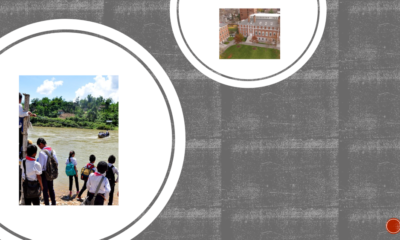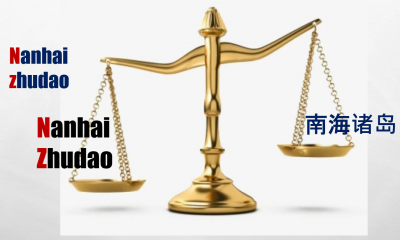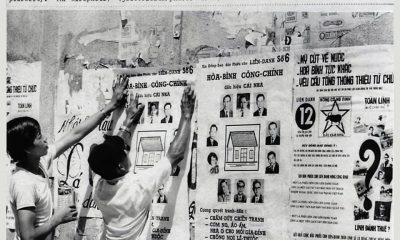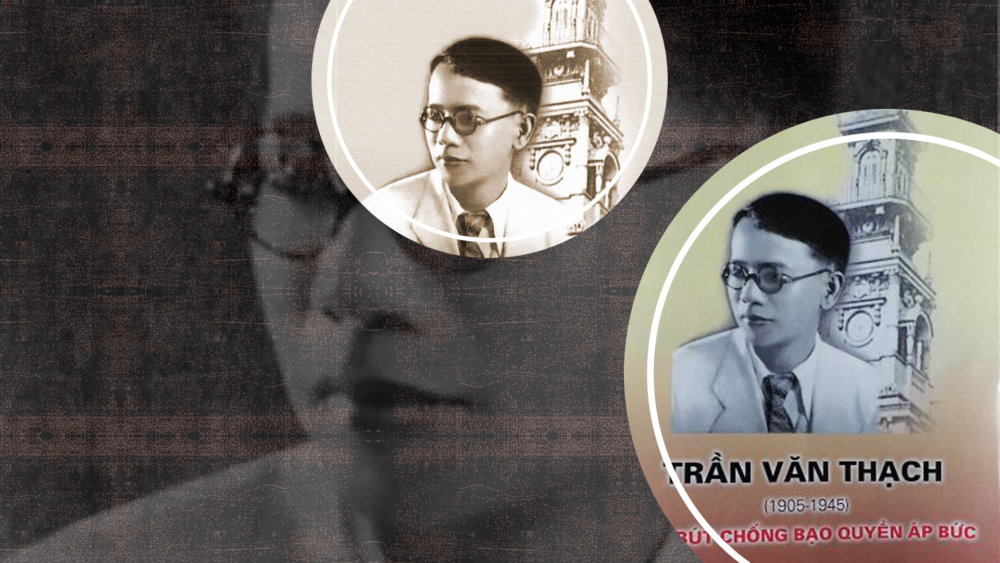By Tran My Chau
Trần Mỹ Châu & Phan Thị Trọng Tuyến, Trần Văn Thạch (1905-1945): Cây bút chống bạo quyền áp bức. Victoria, British Columbia, Canada, 2015 (2nd edition). 510 pages.
SYNOPSIS
The book deals primarily with the life and work of a Vietnamese teacher, journalist, politician, and leftist nationalist who played a major role in the La Lutte (The Struggle) movement, the first important open opposition to colonial rule in Indochina. It also discusses the economic, social, and political situation of Vietnam in 1925-1945, with emphasis on Vietnamese Stalinism and Trotskyism: the Trotskyist-Stalinist United Front against colonialism, the rupture of the front under the pressure of the Comintern, and the Stalinists’ long campaign of defamation against the Vietnamese Trotskyists, led by Ho Chi Minh and his lieutenants which finally brought about the extermination of the entire Trotskyist leadership in 1945.
The La Lutte United Front was formed by the “retour de France,” young Vietnamese intellectuals who had gone to France for their education and returned home with a vision of freedom and democracy for their country. It was the first legal opposition to the French colonial regime that used journalistic, electoral, and social platforms. Most extraordinarily, it was the only Stalinist-Trotskyist alliance in the history of world Marxism, and that at a time when Stalin and his cohorts worldwide were carrying out their brutal campaign to exterminate the Trotskyists.
Trần Văn Thạch was a central figure in the La Lutte group. He wrote regularly for the French-language periodical La Lutte (1933-1939), the official voice of the group, and his contemporaries viewed him as its chief editor. His satirical style earned him the nickname of “polémiste à la verve acide” coined by the French Sûreté générale. La Lutte relentlessly denounced the abuses of the colonial regime and the indigenous landowners and entrepreneurs and demanded basic human and democratic rights. Trần Văn Thạch and other leaders of the group also ran successfully for election to the Saigon Municipal Council in 1935 and the Colonial Council in 1939.
It all began with a street name in Saigon. In 1955, shortly after the end of the Indochina war when Ngô Đình Diệm became head of the Republic of Vietnam, nearly all street names in French such as the Blvd. Galliéni, Blvd. Charner, and rue Catinat were replaced by street names in Vietnamese. Thus rue Vassoigne, a short but lively street lined with movie theaters and bookstores running alongside the Tan Dinh market, became đường Trần Văn Thạch. That change left an uplifting and long-lasting impression on the mind of an adolescent who had gone through a series of tragic events in the 1940s: the death of her father, then of a brother, and the sudden mental illness of her mother who had become ill after being arrested and tortured by the French security police.
However, the euphoria of peace and independence in the fledgling republic was short-lived. People began to talk fearfully of the “Viet Cong” (“Vietnamese Communists”, i.e., fighters or supporters of the underground communist National Liberation Front, which had begun waging a guerilla war against the Diệm government). On a personal level, I was confronted by new challenges. After the carefree and well-sheltered life as a boarding student at the Collège Gia Long in Saigon (thanks to a government scholarship), I had to leave school and find work to support my extended family. Fortunately, a few years later my aunt scraped enough money to open a small eatery to earn a living for the family, and I was able to go back to school.
University life gave me high hopes and changed my worldview. I wanted to forget the past, leave a country of endless wars, and live my future in a different world. In September 1963, I arrived in Honolulu on a grant from the East-West Center to begin a graduate program at the University of Hawaii. A few years later, another scholarship enabled me to pursue a doctoral degree at the University of Toronto in Canada, and it was there that I finally settled. From that time on, my father’s name and my family’s ordeal were seldom mentioned. Another struggle began for me: survival in a quite different new world.
In the mid-1960s there were no more than a few dozen Vietnamese living in Toronto and it was not until the “boat people” arrived in the late seventies that I heard my father’s name mentioned again. One day, during an orientation session for Vietnamese newcomers, a close friend, the writer Trà Lũ, after introducing me to the group, quietly added in a respectful tone: “She is the daughter of Trần Văn Thạch; a street in Saigon was named after him.” It was a proud and emotional moment, the beginning of the driving force that would later send me on a long journey in search of that personage, my father, whom I had known for only the briefest of times, in the summer of 1944.
Career and community work, however, did not leave me much free time, and it was not until my retirement that I was able to set off on the long research journey that led me to the Archives nationales in Paris, the Archives nationales d’Outre-mer in Aix-en-Provence, and the General Sciences Library of Hồ Chí Minh City, and eventually to the publication in 2014 of Trần Văn Thạch (1905-1945): Cây bút chống bạo quyền áp bức.
The book consists of two main parts. The first part is devoted to the memory and biography of Trần Văn Thạch, the second presents a selection of his writings. Two testimonies by his children are included in the first part. In Chapter 1 “Searching for Father,” (pp. 1-39) Trần Mỹ Châu describes her journey in quest of historical information about her father, including her encounter with a prominent member of the Vietnamese Communist Party, Trần Văn Giàu (1911-2010) whom many historians believe was either directly or indirectly responsible for the killing of scores of non-communist leaders in 1945. Chapter 2 (pp. 61-177) also by Trần Mỹ Châu is devoted entirely to the biography of Trần Văn Thạch. It is followed by the testimony of his eldest son, Trần Văn Tự who recounts some important events in his father’s life, public and personal, leading to the fateful year of 1945.
The social and political events that occurred in France and particularly in Vietnam during the period 1925-1945 serve as the backdrop for Thạch’s biography. It follows the major stages of his life, marked first of all by his time in France, which was crucial for his orientation and future political engagement. It was his involvement in the Vietnamese student movements there that shaped his program of action in Vietnam.
Upon his return to Saigon, his activism led him into the double role of journalist and politician in an open anti-colonial movement. At its heart was the La Lutte United Front, whose newspaper La Lutte voiced revolt against colonialist exploitation, called for freedom of the press, and served as a platform for demands to improve a lot of workers and the oppressed. As the Second World War began, metropolitan France outlawed the Communist parties in both the homeland and the colonies, and Thạch was sent to the notorious Poulo Condore penitentiary for four years. He would later die at the hands of the Viet Minh less than two years after his release from prison.
It was precisely this political engagement and the tragic end to both his life and his companions’ lives, all killed in their prime years, that led the author to delve extensively into the relationship between Stalinism and Trotskyism in Vietnam. The role of the Vietnamese Trotskyists in the struggle against colonialism remains unmentioned and unmentionable in the official historiography of Vietnam after 1975. The detailed exposé of historical events in the biography chapter strongly contrasts in tone with the personal memories in chapter 1; however, it is a slice of history often misunderstood, cursorily treated, or deliberately omitted in histories of Vietnam, and must be brought to light.
The second part of the book is an exhaustive compilation of articles (pp. 197-444), published by Trần Văn Thạch in France and later in Vietnam. Eight articles translated into Vietnamese are taken from his Journal des Etudiants Annamites (Toulouse, 1927-1929). More than 80 articles taken from La Lutte (Saigon, 1934-1939), also translated into Vietnamese, are grouped into themes. The book also includes 20 pages (pp. 477-496) of annotations concerning a number of personages, political organizations, and periodicals, and 24 pages of illustrations (family photos and reproductions of newspaper articles and French Sûreté documents).
Thạch’s newspaper articles give the readers some insight into his ideas and action programs aiming at creating a just and egalitarian society. They also provide a slice of the history of colonial Vietnam. Thạch’s writings deal with a wide range of issues: abuse of power by colonial and mandarinal authorities; expropriation of peasant land; exploitation of workers; inadequate education and health care; a need for workers’ unions, for freedom of association and of the press, and of universal suffrage, etc. Sadly these same problems exist in Vietnam today.
Thạch’s writings show his evolution from a young nationalist to an internationalist with revolutionary ideas, albeit one who was in favor of a “gradual and peaceful” decolonization rather than of a violent revolution of the Bolshevik type. Ironically, Thạch died not at the hands of the French colonialists against whom he had campaigned all his life, but at the hands of fellow countrymen, fervent believers in bloody revolution Russian style – once his former allies.
Chau Tran (Trần Mỹ Châu)
Victoria, BC, Canada
August 2021

 Politics & Economy3 years ago
Politics & Economy3 years ago
 Society & Culture4 years ago
Society & Culture4 years ago
 ARCHIVES4 years ago
ARCHIVES4 years ago
 Politics & Economy3 years ago
Politics & Economy3 years ago
 Politics & Economy4 years ago
Politics & Economy4 years ago
 Politics & Economy3 years ago
Politics & Economy3 years ago
 Politics & Economy4 years ago
Politics & Economy4 years ago
 ARCHIVES3 years ago
ARCHIVES3 years ago





